Introduction
How often do rabbits poop? Let’s find out.
Now, I know what you’re thinking – why on earth would anyone want to talk about rabbit poop? But let me tell you, my curious friend, there’s more to these tiny pellets than meets the eye.
Imagine this: you find yourself pondering about the frequency at which our fluffy friends leave their droppings. How often do they poop?
These questions have kept me up at night, and I’m here to quench your curiosity and satiate your burning desire for rabbit poop knowledge!
We’re going to explore everything from the frequency and consistency of rabbit droppings to the factors that can affect their poop patterns. And that’s not all!
Trust me, it’s going to be a wild ride!
So, join me on a poop-tastic adventure! We’re about to unravel the secrets of rabbit poop, learn how to keep our fluffy friends’ bowels healthy, and maybe even appreciate the wonders of nature’s design.
Let the adventure begin!
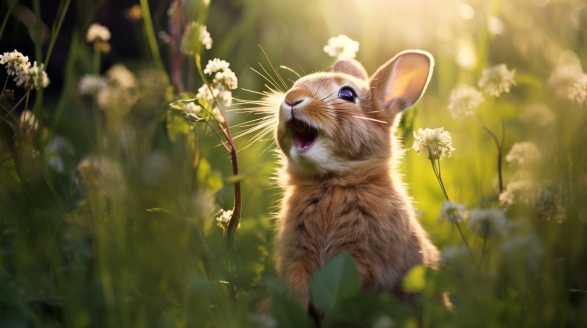
Key Takeaways
- Exercise plays a crucial role in rabbit digestion and helps keep their digestive system healthy.
- Regular physical activity improves gut motility, preventing constipation and blockages.
- Exercise stimulates the fermentation of fiber in the cecum, allowing rabbits to extract vital nutrients from their diet.
- Regular exercise helps regulate a rabbit’s pooping schedule, ensuring consistent and healthy bowel movements.
- Fun activities such as creating an obstacle course, playing hide and seek, and using tunnels can encourage exercise and engage their digestive system.
- A high-fiber diet, with unlimited access to fresh hay, is essential for maintaining optimal digestion in rabbits.
- Providing clean and fresh water at all times is crucial for hydration and proper gut function.
- Offering controlled and healthy treats in moderation ensures a balanced diet and digestive health for rabbits.
The Frequency of Rabbit Poop: Exploring How Often Do Rabbits Defecate
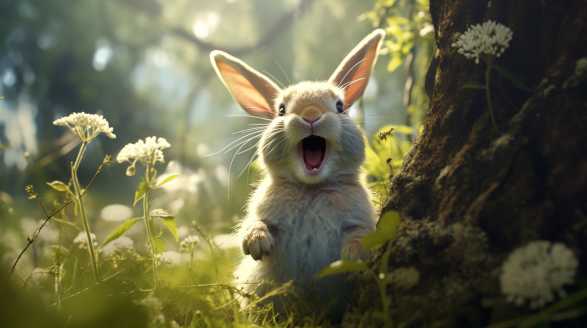
Hey there fellow rabbit enthusiasts! Have you ever found yourself pondering about the frequency at which these adorable furry creatures leave their droppings?
Get ready for a wild ride!
The Fascinating World of Rabbit Poop
Rabbits are known for their cute appearance, playful nature, and, yes, their prolific pooping habits! Those tiny pellets they leave behind may seem insignificant, but they hold essential information about the health and well-being of your fluffy friends.
Rabbit Poop 101: What’s Normal?
Before we deep dive into the mysterious realm of rabbit poop patterns, it’s important to understand what constitutes “normal” bunny droppings. Rabbit feces come in two distinct forms: dry, round pellets and a softer, mucus-covered variety, known as cecotropes.
Pellets Galore: The Regular Depositors
When it comes to rabbit poop, you can expect some serious frequency! On average, a healthy adult rabbit will produce anywhere between 200 and 500 hard, dry pellets each day.
Keep in mind that the exact amount can vary depending on several factors, such as diet, age, and size.
Cecotropes: The Special Treats
Now, let’s talk about those magical bunny droppings known as cecotropes. These fascinating feces are produced directly in the rabbit’s cecum, a part of their digestive system responsible for extracting essential nutrients.
The Scoop on Rabbit Poop: Frequency Factors
You might be wondering what influences the frequency at which rabbits defecate. Well,!
- Diet: A rabbit’s diet plays a significant role in their digestive system. High-fiber foods, such as timothy hay and fresh leafy greens, promote healthy bowel movements.
- Water intake: Proper hydration helps rabbits maintain regular bathroom habits. Make sure your furry friend always has access to fresh water.
- Age: Younger rabbits tend to poop more frequently than their older counterparts.
- Stress levels: Just like us humans, rabbits’ poop patterns can be influenced by stress. Keep your bunny’s environment calm and comfortable to ensure regular bathroom breaks.
Warning Signs: When Poop Patterns Go Awry
While most rabbit poop habits fall within the normal range, it’s essential to be aware of any changes that could indicate underlying health issues. Here are some warning signs to watch out for:
- Too few or no poop: If your rabbit stops pooping altogether, it could be a sign of gastrointestinal stasis, a severe condition that requires immediate veterinary attention.
- Soft, runny or watery poop: Disruptions to your rabbit’s diet or bacterial imbalances in their gut can cause a change in poop consistency. This could be an indicator of a potential health problem. Consult your veterinarian if this persists.
- Blood in the stool: Bloody poop can be a sign of a more severe issue and should be addressed promptly by a professional.
Maintaining Healthy Bunny Bowels
Now that you’re well-versed in rabbit poop frequency and what to look out for let’s explore some tips to promote healthy bowel movements in your fluffy companions:
- Quality diet: Ensure your rabbit’s diet consists mainly of high-quality hay, fresh vegetables, and a suitable rabbit pellet feed. Avoid excess sugary treats that can upset their digestive system.
- Stay hydrated: Provide fresh water at all times to ensure your rabbit stays hydrated, promoting regular bowel movements.
- Exercise and play: Encourage your bunny to stay active with safe toys, tunnels, and ample space to frolic. Physical activity can aid in maintaining a healthy digestive system.
- Regular veterinary check-ups: Schedule regular visits to the vet to monitor your rabbit’s overall health. The vet can address any concerns regarding your bunny’s poop patterns.
Congratulations, my dear rabbit enthusiasts, you’ve embarked on a poop-tastic adventure! From the frequency of rabbit poop to the vital role it plays in their health, we’ve covered it all.
Keep a close eye on your fluffy friend’s bathroom habits and consult a veterinarian if you notice any significant deviations.
Happy rabbit poop watching, and may your furry friends continue to grace your lives with an abundance of adorable droppings!
The Impact of Stress and Anxiety on Rabbit Poop Patterns
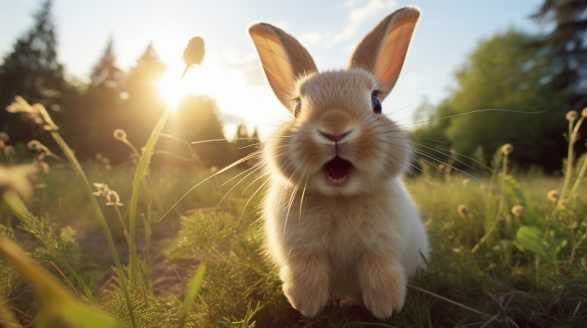
Have you ever wondered how stress and anxiety can affect the poop patterns of rabbits? It may sound like an unusual topic, but you’d be surprised to learn just how much of an impact these psychological factors can have on our furry friends.
Before we dive deep into the world of stress and anxiety, let’s first understand the basics of rabbit poop patterns. Rabbits have a unique digestive system that involves two types of feces – hard, round pellets and soft, partially digested cecotropes.
Rabbit poop can be a great indicator of their health and overall well-being. Any changes in their poop patterns can be a sign of an underlying issue, and stress and anxiety happen to be common culprits.
Unraveling the Link between Stress and Poop Patterns
Stress is a common emotion experienced by both humans and animals. Rabbits, being highly sensitive creatures, are no exception.
- Decreased Frequency of Pooping: One common characteristic of stressed rabbits is a decrease in the frequency of pooping. This occurs due to a slowdown in the digestive system as a result of heightened stress levels.
- Change in Poop Consistency: Stress can also impact the consistency of rabbit poop. It often leads to harder and smaller pellets, which can sometimes be mistaken for constipation. On the other hand, some stressed rabbits may experience softer stools, indicating a rapid transit time through the digestive tract.
- Presence of Abnormal Colors: Another intriguing aspect of stress-induced poop changes in rabbits is the emergence of abnormal colors. Stress can cause the stool to be lighter or darker than usual, reflecting the impact stress has on the digestive process.
Anxiety and Its Effects on Rabbit Poop Patterns
Just like humans, rabbits can also suffer from anxiety, which in turn can affect their poop patterns. Anxiety is often linked to a constant state of fear or unease, and it can disrupt the normal functioning of the rabbit’s body, including its digestive system.
- Erratic Poop Patterns: Anxiety can cause rabbits to exhibit irregular poop patterns. They may experience unpredictable bouts of diarrhea or constipation, leading to frustration for both the rabbit and its owner.
- Inconsistent Poop Size: When anxiety takes hold of a rabbit’s life, it can lead to inconsistent poop sizes. Some may have small, pellet-like stools, while others may produce larger, misshapen pellets due to the increased muscular contractions associated with anxiety.
- Cecotrope Consumption Changes: Anxiety can disrupt a rabbit’s usual cecotrope consumption habit. Rabbits may become disinterested or reluctant to consume these nutrient-rich stools, leading to an imbalance in their dietary needs.
Coping with Stress and Anxiety for Healthy Poop Patterns
Now that we understand how stress and anxiety can impact rabbit’s poop patterns, let’s explore some strategies to help our furry friends cope with these psychological factors.
- Provide a Safe and Stimulating Environment: Creating a safe and enriching environment can help alleviate stress and anxiety in rabbits. Ensure they have enough space to roam and explore, with hiding spots and toys to engage their curious minds.
- Establish a Consistent Routine: Rabbits thrive on routine, and having a set feeding, exercise, and playtime schedule can help reduce stress levels. Consistency provides a sense of security and predictability for rabbits, ultimately promoting healthier poop patterns.
- Introduce Calming Techniques: Various calming techniques can be employed to help rabbits combat stress and anxiety. These include providing chew toys, gentle petting, and even soothing music or natural aromatherapy options like lavender.
- Seek Veterinary Guidance: If your rabbit continues to display significant changes in poop patterns despite your best efforts, it is crucial to consult a veterinarian. They can assess the underlying cause and provide appropriate treatment or guidance to help your rabbit regain its natural poop patterns.
Who knew that stress and anxiety could have such a profound impact on a rabbit’s poop patterns? With their delicate digestive system, it is essential to monitor any changes in poop patterns as an indicator of their overall well-being.
Dietary Fiber and Rabbit Poop: Unraveling the Connection
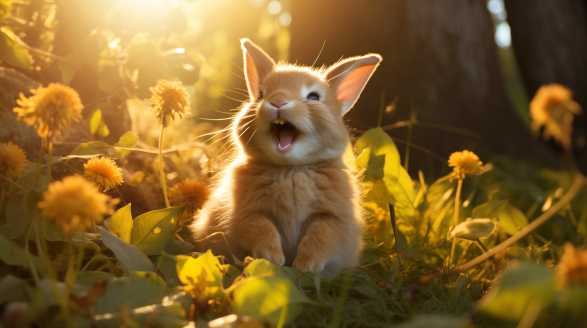
As I sit here contemplating the curious relationship between dietary fiber and rabbit poop, I find myself in a state of perplexity. How could something as simple as fiber have any connection to those little pellets that rabbits leave behind?
The Wonders of Dietary Fiber
Let’s start by exploring the world of dietary fiber. Fiber is a crucial component of a healthy diet, known for its numerous benefits.
- Digestive Health: Fiber promotes regular bowel movements, preventing constipation and maintaining a healthy digestive system. It adds bulk to our stool, making it easier to pass through the intestines.
- Feeling Full: Including fiber-rich foods in your meals can help you feel fuller for longer. This can be particularly useful if you’re trying to manage your weight or avoid overeating.
- Blood Sugar Control: Certain types of fiber, such as soluble fiber, can help stabilize blood sugar levels. This is especially beneficial for individuals with diabetes or those at risk of developing the condition.
- Heart Health: Consuming an adequate amount of fiber has been linked to a reduced risk of heart disease. It can help lower cholesterol levels and decrease blood pressure, contributing to a healthier heart.
- Weight Management: High-fiber foods tend to be lower in calories and provide a higher level of satiety. This means you can eat a satisfying amount of food without piling on excess calories.
The Rabbit’s Mysterious Droppings
Now, let’s turn our attention to rabbit poop, those quintessential small, spherical droppings that rabbits leave in their wake. Could there be a connection between these curious little pellets and the wonders of dietary fiber?
The Connection Unveiled
- Fiber Frenzy: Rabbits have a unique digestive system. They consume a high-fiber diet primarily composed of grasses and hay. This fibrous diet is essential for their overall health and wellbeing.
- Efficient Digestion: Rabbits have a remarkable ability to extract as many nutrients as possible from their fibrous diet. They have a specialized structure called a cecum, located at the beginning of their large intestine. The cecum acts as a fermentation chamber, breaking down fiber with the help of beneficial bacteria. This allows rabbits to extract vital nutrients from their food that would otherwise be indigestible.
- Nighttime Nature Calls: After the fermentation process in the cecum, rabbits produce a soft, nutrient-rich substance called cecotropes. These cecotropes contain essential vitamins, fatty acids, proteins, and microbial compounds that are beneficial to the rabbit’s overall health.
- Double Culinary Delight: But here’s the fascinating part: rabbits eat their cecotropes! Yes, you read that correctly. They consume their own poop to further extract nutrients and maximize the benefits of dietary fiber. So, essentially, rabbits have two rounds of digestion!
The Rabbit Poop Paradox
You might be wondering why rabbits go through the trouble of eating their own poop. It may seem strange and even a little gross, but it serves a vital purpose.
It’s nature’s way of efficiency, even if it seems peculiar to us humans.
The Circle of Life and Fiber
The connection between dietary fiber and rabbit poop is truly remarkable. By consuming a high-fiber diet, rabbits maintain a healthy digestive system and optimize nutrient absorption.
So,the next time you stumble upon rabbit droppings in your backyard or while exploring nature, marvel at the intricate relationship between dietary fiber and those intriguing little pellets. It’s a true testament to the wonders of the natural world and how it never ceases to surprise us.
Embracing the Fiber-Rabbit Connection
Now that we’ve unraveled the connection between dietary fiber and rabbit poop, let’s take a moment to appreciate the importance of fiber in our own diets. Including fiber-rich foods, such as whole grains, fruits, vegetables, legumes, and nuts, can provide numerous health benefits.
Remember, fiber is not just about preventing constipation or feeling full; it’s about nourishing our bodies and keeping our digestive systems in optimal condition. As we reflect on the fascinating journey we’ve embarked upon today, let’s embrace the fiber-rabbit connection and make conscious choices to prioritize fiber in our daily lives.
Let Fiber Be Your Guide
- Stock Up on Whole Foods: Incorporate whole grains like quinoa, brown rice, and oats into your meals. Opt for whole fruits instead of juices and snack on raw, fiber-rich vegetables.
- Legumes for the Win: Include beans, lentils, and chickpeas in your diet to boost your fiber intake. They are not only delicious but also excellent sources of plant-based protein.
- Nuts and Seeds: Enjoy a handful of almonds, walnuts, or chia seeds as a nutritious snack or sprinkle them over salads and yogurts. They provide a satisfying crunch and an additional fiber punch.
- Hydrate, Hydrate, Hydrate: Drinking an adequate amount of water is essential to allow fiber to do its job effectively. Stay hydrated to keep things moving smoothly through your digestive system.
So, my curious friends, as we draw this captivating journey to a close, let’s remember the extraordinary connection we unraveled today. With fiber as our guide, we can nourish our bodies, embrace the wonders of nature’s design, and perhaps even marvel at those little pellets left behind in our gardens by our furry friends, the rabbits.
Common Digestive Disorders in Rabbits: Their Effects on Poop Habits
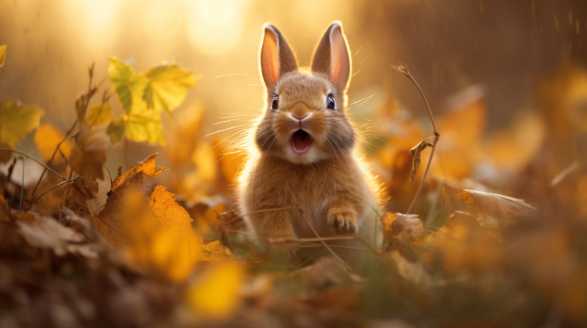
Being the proud owner of a fluffy, hoppy, and adorable rabbit comes with a set of responsibilities. One crucial aspect of caring for your furry friend is understanding their digestive system and being aware of any potential disorders that can affect their poop habits.
I will look into the fascinating world of digestive disorders in rabbits and how they can impact those little round droppings we often take for granted.
The Rabbit’s Remarkable Digestive System
Before we dive into the disorders, let’s take a moment to appreciate the awe-inspiring digestive system of these wonderful creatures. Unlike us humans, rabbits are herbivores, which means their diet primarily consists of plant-based materials.
Rabbits have a unique digestive organ called the cecum, which acts as a fermentation chamber. It plays a vital role in breaking down tough plant fibers and extracting nutrients.
Fascinating, isn’t it?
The Perils of Digestive Disorders
Unfortunately, despite their remarkable digestive systems, rabbits can still fall victim to various digestive disorders. These disorders can cause discomfort, pain, and even lead to severe health complications if left untreated.
1. Gastrointestinal Stasis
Gastrointestinal stasis, also known as “GI stasis,” is a condition where the rabbit’s digestive system slows down or completely shuts down. This disorder often results from a lack of dietary fiber or insufficient hydration.
You may notice a decrease in the number of droppings, smaller droppings, or even no droppings at all.
2. Hairball Accumulation
Rabbits are fastidious groomers, and as a result, they often ingest their own fur while grooming. In some cases, this fur can accumulate in the digestive system, forming hairballs.
Consequently, their poop habits may become irregular, with fewer droppings and the presence of mucus in the feces.
3. Intestinal Blockages
Intestinal blockages in rabbits can occur due to the ingestion of foreign objects, such as carpet fibers, plastic, or even certain plants. These blockages can disrupt the normal flow of food through the digestive tract, leading to serious health complications.
4. Dysbiosis
Dysbiosis refers to an imbalance in the microbial population within the rabbit’s digestive system. This disturbance typically occurs when there is a disruption in the healthy gut flora, often triggered by factors like stress or antibiotic usage.
Knowing the Signs and Taking Action
Identifying a digestive disorder in your rabbit early on is key to preventing further complications. By familiarizing yourself with the signs of these disorders, you can promptly seek veterinary assistance and ensure your fluffy companion receives the care they need.
Signs to Watch Out For:
- Reduced or absent droppings
- Smaller or larger droppings than usual
- Changes in droppings’ consistency (e.g., soft, mucus-covered)
- Signs of abdominal discomfort (e.g., bloating, reduced appetite)
- Abnormal or reduced appetite
- Reduced energy or lethargy
Seeking Veterinary Care and Treatment Options
When you notice any of these signs, don’t delay in contacting a veterinarian who specializes in rabbit care. They will conduct a thorough examination and suggest appropriate treatment options based on the specific disorder present.
Possible Treatment Approaches:
- Dietary modifications – Increasing fiber intake through hay and fresh greens.
- Medications – Veterinarians may prescribe prokinetic agents to stimulate gastrointestinal motility or pain relief medication to alleviate discomfort.
- Fluid therapy – In cases of dehydration, subcutaneous or intravenous fluids may be administered.
- Professional grooming – For hairball accumulation, a rabbit-savvy groomer may help remove excess fur and prevent further blockages.
- Surgical intervention – In severe cases of intestinal blockages, surgery may be necessary to remove the obstruction safely.
Prevention is Better than Cure
While digestive disorders can strike any rabbit, there are steps you can take to minimize the risk:
- Provide a balanced diet rich in dietary fiber, such as high-quality hay and fresh vegetables.
- Encourage regular exercise to maintain a healthy digestive system.
- Ensure constant access to clean water to prevent dehydration.
- Minimize exposure to potential hazards like chewing on household items or toxic plants.
- Maintain a stress-free environment by providing a secure and comfortable living space for your rabbit.
Now that you are well-versed in the common digestive disorders that can affect your rabbit’s poop habits, you can provide them with the best possible care. Understanding the signs, seeking prompt veterinary attention, and taking preventative measures are essential to ensure your furry friend’s digestive health remains in tip-top shape.
The Link Between Rabbit Health and Poop: How Often Do Healthy Rabbits Poop?
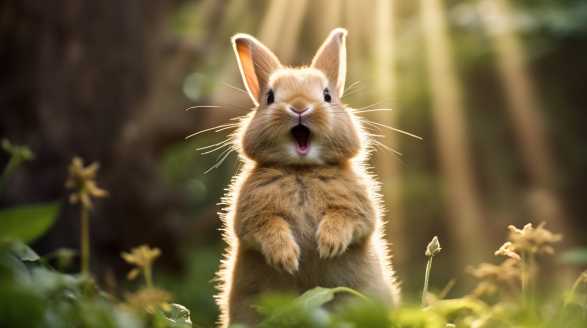
As a proud rabbit owner, I’ve always been fascinated by the connection between my fluffy friend’s health and their poop. It may sound odd, but believe me, understanding your bunny’s bathroom habits is a crucial step towards ensuring their overall well-being.
Rabbit Poop: A Marvel of Nature
Rabbits have uniquely designed digestive systems that deserve praise. Unlike humans, who produce poop after their food has been digested, rabbits pass two types of feces: hard, round droppings known as fecal pellets and softer, cecotropes that they consume right from their hindquarters.
Healthy Rabbit Poop: What to Look For
Wondering what healthy rabbit poop should look like? The answer lies in the fecal pellets.
They should be uniform in size and shape, indicating a robust digestive system at work. The color can range anywhere from light brown to dark brown, with variations depending on the rabbit’s diet.
How Often Do Healthy Rabbits Poop?
Now, let’s get to the core question of this article: How often do healthy rabbits poop? Well, the answer may surprise you.
Yes, you read that right! These little munchers are true poop-producing machines.
Factors Influencing Rabbit Poop Frequency
The frequency of a rabbit’s poop can vary depending on several factors. Let’s take a look at some key elements that can influence how often your furry friend visits the litter box:
- Diet: A well-balanced diet rich in hay, fresh vegetables, and limited portions of pellets promotes healthy digestion and, consequently, regular poop production.
- Water Intake: Adequate hydration is essential for any living creature, and rabbits are no exception. Make sure your rabbit always has access to fresh water to avoid any digestive issues.
- Exercise: Regular exercise keeps a rabbit’s digestive system active, helping to maintain a healthy poop schedule. Encourage playtime and provide ample space for hopping and running.
- Stress Levels: Just like us, rabbits are affected by stress. Excessive stress levels can disrupt their digestive system, resulting in irregular bowel movements. Provide a safe and calm environment to reduce stress.
When to Be Concerned
As a responsible rabbit owner, it’s vital to know when you should be concerned about your bunny’s poop habits. While frequency can vary, sudden changes in poop frequency, consistency, or appearance may indicate an underlying health issue.
- Diarrhea: Loose, watery droppings may be a sign of an upset tummy or an infection. If your rabbit consistently has diarrhea or displays other signs of illness, it’s time to consult a veterinarian.
- Absence of Poop: If your rabbit hasn’t passed any fecal pellets for more than 12 hours, it’s a clear indication that something is wrong and immediate veterinary attention is necessary.
- Abnormal Color or Smell: Poop that has an unusual odor, excessive mucus, or shows signs of blood should never be ignored. This could be a symptom of a serious health issue.
Remember, as a rabbit owner, you know your furry friend best. If something seems off, don’t hesitate to consult a veterinarian to ensure your beloved bunny receives the care they need.
Understanding the link between a healthy rabbit and their poop is essential for any responsible pet owner. By becoming familiar with what your rabbit’s droppings should look like, how often they should be produced, and what to watch out for, you can play an active role in their overall well-being.
So, observe your bunny’s poop, embrace the vast number of droppings they leave behind, and rest assured that you are doing everything you can to keep your floppy-eared friend healthy, vibrant, and full of life.
The Importance of Hay in a Rabbit’s Poop Routine
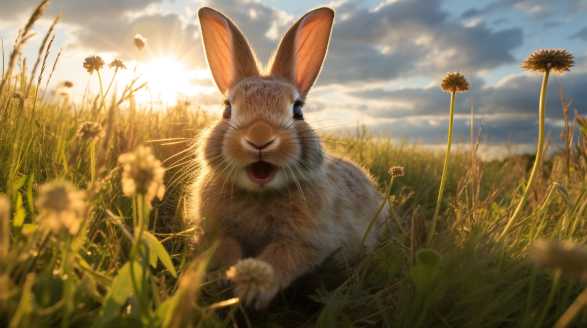
As a proud rabbit owner, I can’t help but marvel at the intricate and curious behaviors of my fluffy companion. One particular aspect that never fails to capture my attention is their poop routine.
But before you raise an eyebrow or dismiss this topic as irrelevant, let me assure you that understanding the importance of hay in a rabbit’s poop routine can provide invaluable insights into their health and overall well-being.
The Wonders of Rabbit Poop
You may be wondering why anyone would bother delving into the details of rabbit poop. Well, dear reader, rabbit poop is far from ordinary.
Rabbit owners often use the state of their pet’s droppings as a way to gauge their well-being.
Rabbit Poop 101
Before we look into the crucial role that hay plays in the poop routine, let’s first understand the different types of droppings a rabbit produces. Yes, there’s more than one type!
- Hard, Round Pellets: These dainty droplets are usually dry and firm, resembling miniature marbles.
- Cecotropes: Also known as “night feces,” cecotropes are soft, shiny, and dark, resembling clusters of grapes. Rabbits consume these right from their source and don’t eliminate them like regular poops.
- Soft/Mushy Droppings: Occasional soft or mushy droppings are part of a rabbit’s normal routine, so nothing much to worry about there. They might resemble a less coherent version of the hard pellets.
The Essential Role of Hay
Now that we’ve explored the mysterious world of rabbit poop, let’s venture into the importance of hay in their digestive system. Hay is an essential component of a rabbit’s diet for several reasons:
1. Dental Health
Rabbit teeth are continuously growing, similar to ours. Chewing on hay helps wear down their teeth naturally, preventing dental problems that can arise if their teeth become too long.
2. Good Digestion
Hay is a crucial source of fiber for rabbits. It aids in maintaining a healthy gut by promoting regular bowel movements and preventing constipation.
3. Cecotrope Production
Remember those cecotropes we mentioned earlier? Well, hay plays an integral role in their formation.
These cecotropes are a vital part of the rabbit’s diet as they contain essential nutrients, vitamins, and beneficial bacteria. They are ultimately re-ingested by the rabbit, providing them with valuable sustenance.
Finding the Perfect Hay
Not all hays are created equal, and choosing the right one for your rabbit is crucial. Here are some key factors to consider when selecting the perfect hay:
1. Timothy Hay
Timothy hay is often the top choice for rabbit owners due to its balanced nutritional profile and low-calorie content. It is easily digestible, rich in fiber, and supports a healthy digestive system.
2. Meadow Hay
Meadow hay, a mix of various grasses and wildflowers, offers a diverse range of flavors and textures to stimulate your bunny’s palate. It helps prevent boredom and encourages foraging behavior.
3. Orchard Grass Hay
Another fantastic choice is orchard grass hay. It is softer and more palatable than Timothy hay, making it ideal for picky eaters.
Feeding Hay the Right Way
Now that you’ve found the perfect hay for your beloved pet, it’s important to understand how to incorporate it into their daily routine effectively. Here are some tips for feeding hay the right way:
- Quantity: Offer a generous supply of hay daily. Rabbits should have access to hay at all times, as they require constant chewing to maintain dental health and support digestion.
- Quality: Ensure the hay is fresh, free from dust, mold, or any signs of spoilage. It’s crucial to provide your rabbit with clean and good-quality hay to prevent any potential health issues.
- Variety: Introduce different types of hay gradually to add variety and stimulate their taste buds. A combination of Timothy hay, meadow hay, and orchard grass hay can keep your rabbit engrossed and satisfied.
Who would have thought that rabbit poop could provide such fascinating insights into their health? By understanding the importance of hay in a rabbit’s poop routine, we gain a deeper understanding of their overall well-being.
So,never underestimate the significance of hay in your bunny’s life. Ensure they have access to fresh, high-quality hay every day, and watch them thrive in optimal health.
Factors Affecting Rabbit Digestion: How Diet and Environment Impact Rabbit Poop
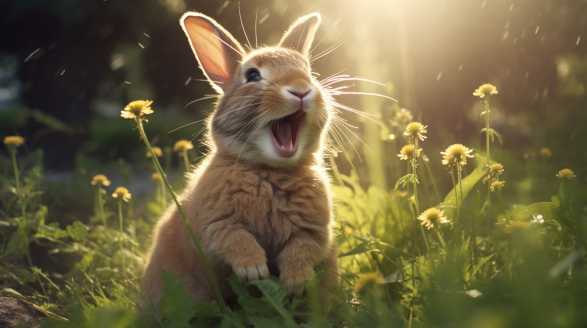
As a proud rabbit owner, I must admit that one of the most fascinating aspects of these adorable furballs is their digestive system. It might sound strange, but trust me, understanding the factors that affect rabbit digestion and how they impact their bathroom habits is essential for providing top-notch care for your fluffy friend.
What Goes In Must Come Out: The Basics of Rabbit Digestion
Before we explore the factors that influence rabbit poop, it’s important to have a basic understanding of how their digestion works. Rabbits are herbivores, which means their diet consists mainly of plant-based foods.
1. The Munching Machine: Rabbits and Their Constant Need to Chew
Rabbits have an insatiable appetite and continuously graze on various types of grasses, hay, vegetables, and even some fruits. This constant chewing serves two purposes: firstly, it aids in grinding down their ever-growing teeth, and secondly, it promotes good digestion by breaking down the food into smaller, more manageable pieces.
2. The Call of the Ceca: The Importance of Cecotropes
Rabbits have a unique digestive process called “hindgut fermentation.” Once food passes through their initial digestion in the stomach and small intestine, it reaches the cecum—an enlarged pouch where the magic happens.
Hence, rabbit poop comes in two distinct forms: the typical dry fecal pellets (which we commonly associate with poop) and the nutrient-rich, moist cecotropes that rabbits consume directly from their bottom. I know, it sounds a bit gross, but it’s an essential part of their diet.
How Diet Influences Rabbit Digestion
Now that we have a solid foundation, let’s explore how a rabbit’s diet affects their digestion and the quality of their poop. Remember, a healthy diet leads to healthy digestive processes.
1. Fiber, Fiber, Fiber: The Key to a Happy Rabbit Tummy
Dietary fiber is a crucial component of a rabbit’s diet. High-fiber foods such as hay, grass, and leafy green vegetables aid in maintaining proper digestion and keeping the gut motility in check.
2. The Culprit of Carbs: Moderation is Key
While carbohydrates are necessary for rabbits, too much can wreak havoc on their digestion. High-sugar, starchy foods, such as fruits or root vegetables, should be offered sparingly and in small quantities.
3. Hydration Station: The Importance of Water
Just like humans, rabbits need a constant supply of fresh water. Insufficient hydration can lead to dehydration, causing a range of digestive problems such as constipation.
The Impact of Environment on Rabbit Digestion
Beyond diet, environmental factors play a significant role in determining the efficiency of a rabbit’s digestive system. Providing the right conditions for your furry friend is crucial for their overall well-being and production of healthy poop.
1. Stress Busters: A Calm Environment
Rabbits are delicate creatures that thrive in a peaceful and stress-free environment. When subjected to loud noises or frequent disturbances, their digestion can be negatively affected.
2. The Joy of Exercise: Keep those Bunnies Hopping
Regular exercise is not only essential for your rabbit’s overall health but also for maintaining proper digestion. Encourage your bunny to stay active by providing ample space for hopping and play.
3. Chew, Chew, Chew: The Power of Good Dental Health
Remember how important chewing is for rabbits? Maintaining proper dental health is crucial in ensuring healthy digestion.
And there you have it! Now you understand how diet and environment impact rabbit poop.
So, be a responsible rabbit owner and embrace the wonder of their digestion. Your fluffy companion will thank you with binky-filled joy and beautifully formed bunny droppings.
The Role of Exercise in Rabbit Digestion: How Movement Affects Pooping
As a proud rabbit owner, I’ve always been fascinated by the intricacies of my furry friend’s digestive system. It’s fascinating to watch them munch on their favorite vegetables and hay, but have you ever wondered how exercise plays a role in their digestion?
we will explore the remarkable relationship between exercise and rabbit digestion, specifically how movement affects the process of pooping.
Let’s Get Things Moving: Why Exercise Matters
Rabbits are active creatures by nature, and exercise is crucial for their overall well-being. Regular physical activity not only promotes a healthy body but also keeps their digestive system in tip-top shape.
- Improved Gut Motility: Exercise stimulates the muscles in a rabbit’s digestive tract, enhancing the movement of food through their system. This increased motility helps prevent any blockages or constipation, keeping their gut healthy and functioning properly.
- Fiber Fermentation: Rabbits require a high-fiber diet to maintain optimal digestive health. Exercise helps stimulate the fermentation of fiber in their cecum, a specialized part of their digestive system. This fermentation process breaks down the fiber, allowing rabbits to extract essential nutrients from their food.
- Regulates Pooping Frequency: Regular exercise helps regulate a rabbit’s pooping schedule. Exercise stimulates the rhythmic contractions of the digestive muscles, ensuring proper movement of food through their system. This, in turn, leads to consistent and regular pooping habits.
Hop, Skip, and Jump: Fun Ways to Encourage Exercise
Now that we understand the importance of exercise in rabbit digestion, let’s dive into some exciting ways to keep our fluffy friends active and their guts happy. Try these activities that will get your rabbit motivated to move:
1. Bunny Obstacle Course
Create an entertaining obstacle course for your rabbit using household items like cardboard tunnels, small ramps, and low hurdles. Encourage them to hop over, under, and through the obstacles.
2. Hide and Seek
Rabbits have a natural instinct to explore and forage. Tap into this instinct by hiding their favorite treats or pieces of fresh fruits and vegetables around their play area.
3. Toy Toss
Rabbits love to play, and a simple game of toy toss can be a perfect exercise session. Take a soft, lightweight toy and gently toss it towards your rabbit.
4. Tunnel Time
Invest in a rabbit tunnel or DIY one using cardboard. Rabbits adore exploring tunnels, and this activity provides ample exercise opportunities.
The crawling and hopping involved will aid in proper food movement through their digestive system.
Additional Tips for a Happy Bunny Gut
While exercise plays a vital role in rabbit digestion, there are a few other factors to consider to maintain a happy bunny gut. Here are some additional tips to ensure your rabbit’s digestive system stays in top form:
1. A High-Fiber Diet
Ensure your rabbit’s diet primarily consists of hay, as it is an excellent source of fiber. A good rule of thumb is to provide unlimited access to fresh hay, as it aids in intestinal motility and prevents hairballs or blockages.
2. Fresh Water
Offer clean and fresh water at all times. Hydration is crucial for overall digestion, and rabbits need an adequate supply of water to keep their gut working efficiently.
3. Controlled Treats
While treats can be a great way to interact with your rabbit, moderation is key. Too many treats or an unbalanced diet can upset their digestive system.
The role of exercise in rabbit digestion should never be understated. By encouraging physical activity and providing a high-fiber diet, we can ensure our fluffy companions have a healthy gut and a regular pooping schedule.
Not only will they thank us with a happy tummy, but we’ll also enjoy endless moments of joy watching them play and explore their world.
Conclusion
Well, my fellow rabbit enthusiasts, we’ve reached the end of our poop-tastic adventure through the fascinating world of rabbit digestion and poop! I hope you’ve enjoyed uncovering the mysteries of rabbit droppings as much as I have.
Who knew that something as simple as rabbit poop could hold such vital clues about their health and well-being? From the frequency and consistency of their droppings to the role of fiber and exercise in their digestion, we’ve explored it all.
Now, armed with this newfound knowledge, you can provide top-notch care for your beloved bunny friends. Keep an eye on their poop habits, ensuring that they’re producing those beautiful round pellets and consuming those essential cecotropes.
Remember, a healthy diet rich in fiber, plenty of exercise, and a stress-free environment are the keys to maintaining a happy and vibrant rabbit digestive system. Plus, don’t forget the importance of hay in their poop routine – it’s like their very own poop-producing superhero!
So, keep those rabbit tummies happy, and let the pooping adventures continue. With your commitment to their well-being, your furry friends will thrive, produce beautiful poop, and bring endless joy to your life.
Thank you for joining me on this poop-filled journey! May you continue to learn, love, and appreciate the wonders of rabbit poop.
Frequently Asked Questions
How often do rabbits poop?
- Rabbits typically poop multiple times a day, as often as once every hour.
- The frequency of their poop can vary based on factors like diet, age, and overall health.
- On average, rabbits produce around 200 to 300 poops per day.
- Their poop often comes in the form of small, round pellets.
- Rabbits have a unique digestive system that requires them to eat their own poop, known as cecotropes, to obtain essential nutrients.
- The exact amount of poop produced by a rabbit can also depend on the individual and their metabolism.
- If you notice a sudden change in their poop frequency or appearance, it’s best to consult a vet to rule out any possible health issues.
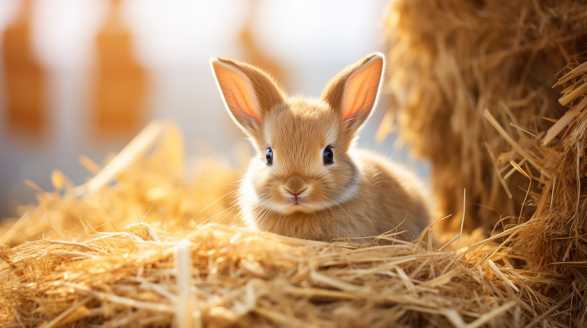
Straw Bedding For Rabbits
Introduction Hey there rabbit owners! Are you looking for the ultimate guide to maintaining straw bedding for your furry friends? As a fellow rabbit enthusiast, I understand the importance of providing our fluffy companions with a comfortable and clean living space. That’s why I’ve put together this comprehensive article to help you master the art […]
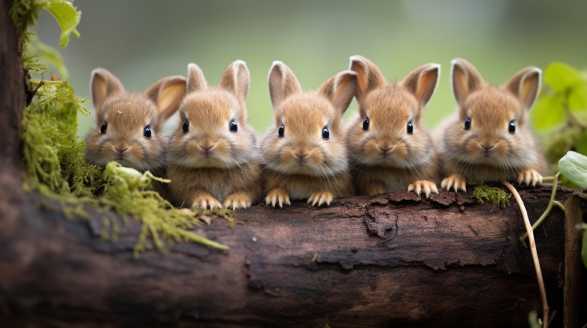
How Many Babies Do Rabbits Have
Introduction Hey there, rabbit enthusiasts! Are you ready to dive into the enchanting world of rabbits and explore their extraordinary reproductive abilities? we will unravel the mysteries behind the rapid breeding capabilities of rabbits and discover the secrets behind their impressive population growth. From the basics of rabbit reproduction to the unique traits of different […]
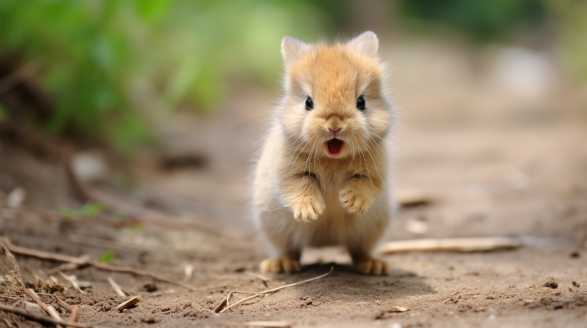
Are Rabbits Dangerous
Introduction Hey there, fellow animal lovers! Are you ready for an exciting adventure into the world of rabbits? But there’s so much more to them than meets the eye! Today, we’re going to dive deep into the behavior, potential dangers, and ways to create a safe environment for rabbits and their human companions. From their […]
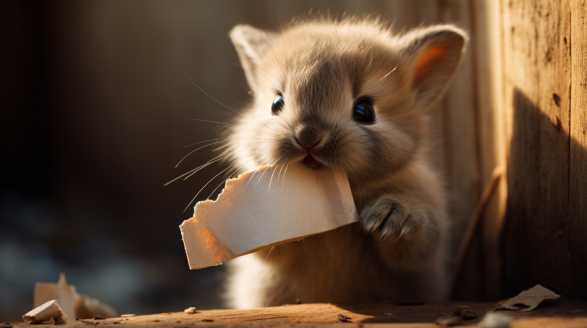
Can Rabbits Chew On Cardboard
Introduction Are you a proud rabbit owner who’s always wondered why your furry friend enjoys chewing on cardboard? Well, you’re not alone! That’s why we’ve dedicated this article to exploring the ins and outs of cardboard chewing in rabbits. We’ll dive into topics like whether it’s a sign of boredom, alternatives to cardboard, and how […]
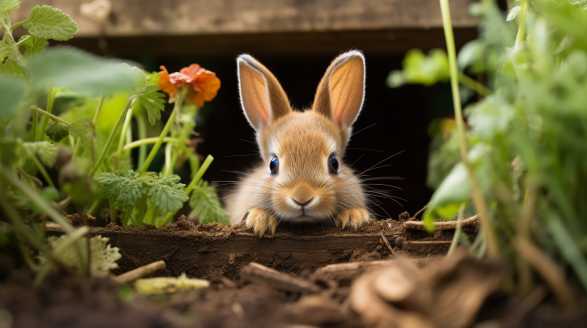
How To Keep Rabbits Out Of Garden
Introduction How to keep rabbits out of garden? Let’d find out. Imagine this – you’ve poured your heart and soul into creating the most picture-perfect garden. The flowers are in full bloom, the vegetables are thriving, and there’s an air of serenity as you bask in the beauty of your hard work. But fear not, […]
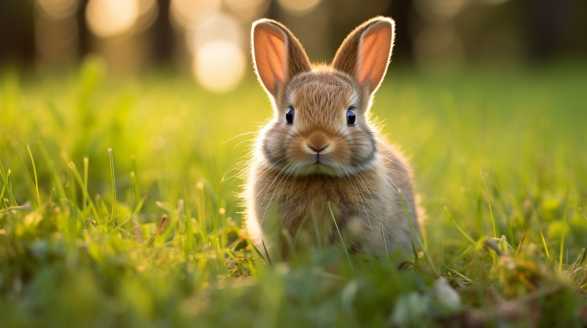
How To Stop Rabbits From Destroying Your Lawn
Introduction Hey there, fellow gardeners and lawn enthusiasts! We all love the sight of a perfectly manicured lawn, don’t we? That’s why I’m here today to share some fantastic solutions to help you reclaim your lawn from these furry invaders. we’ll explore a variety of chemical-free remedies and DIY methods to keep rabbits away from […]
